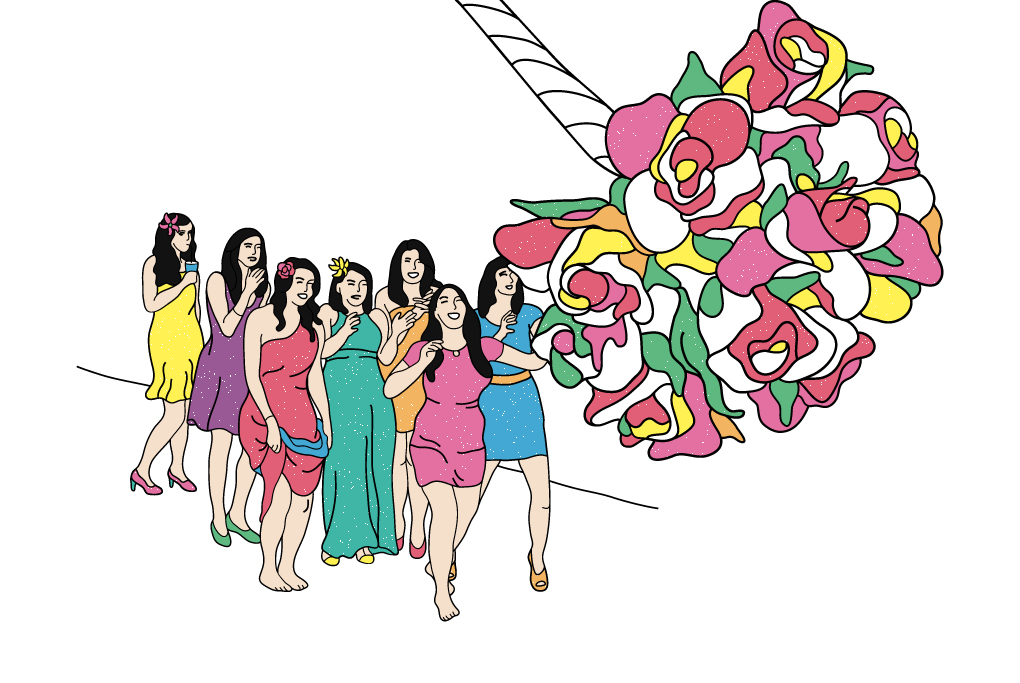
According to 2010 date from the World Bank, the average age Indonesian women have their first marriage is 22.3. Coincidentally, last weekend I just turned 23, a feat I would not have been able to imagine during my late teens when high school seemed like the be-all and end-all of life. Though marriage is not listed on my short-term life plans, it did cross my mind for a brief moment: was I supposed to already be married? If not now, then soon?
This was further emphasised by a recent wedding of a high school acquaintance and also the impending wedding of a university friend. It also might have crossed my mind when I attended a slew of my boyfriend’s friends’ weddings.
A recent conversation with my younger sister also pointed out to me that my own feelings are not isolated. She told me that she had a conversation with several of our mother’s friends who assured her that she didn’t have a boyfriend…yet.
As a person entrenched in any community or culture, you are expected to go through a few rites of passages throughout your whole life. As a woman, the pressure to go through the most important rite in our culture for women at certain times in your life can be even more overwhelming; once you’ve gotten your first period, you’ve become a woman, once you’re a woman, you’re supposed to scour the place for the perfect suitor – important checkpoints: is he the same religion as you? Will he be able to finance his future family with his current job? Which circles do his parents hang out in? – and once you’ve found the perfect suitor, you’re expected to get hitched as soon as possible – before your thirties, please, because by then you’d be an old maid – so that you can have kids as soon as possible. Then what? Your life seems to revolve around catering to your new family – watching them grow – and leaving little-to-no space for your own growth and priorities.
The importance of this rite is not only highlighted in our culture, but it shows in our marriage laws. As mentioned in a previous article, our 1974 marriage law stipulates that a woman can legally get married at 16 if her parents give consent. What I did not mention previously was that the legal marriage age for men — with their parents’ consent — is 19. The fact that the age of parental consent for the woman is younger shows that the faster a woman gets married, the better.
Furthermore, the marriage law states that when a man and a woman is married, the man must become the head of the family while the woman must take care of the household. If either spouse feels like their partner is not fulfilling their roles, the law states that they can take the case to court.
As archaic as the law is, it technically still applies to every one of us who is married or is getting married. This means that, by law, our roles in our married relationship are cemented. If we were theoretically still abiding to the rules strictly, why would I want to get married if I have no say in the role I would play in my married life?
Of course, nowadays, the sequence of rites is usually interrupted by a job, but sometimes even the job is cut short depending on different circumstances. If your partner is a colleague and your company has a no inter-company marriage policy, it would seem more beneficial for the woman to quit her job since – as mentioned in my previous article – men get more benefits at work than women.
In cases where such a policy does not exist, sometimes its the pressure from relatives that force you into this rite. If a woman puts off marriage for self actualisation, she can sometimes be seen as selfish, not only because this means that she is putting off the chance of her parents having grandchildren, but also because some people think — and I have heard this from a lot of my own relatives — that being an “older” mum isn’t fair on your children because you would not have enough energy to take care of them.
I’m not saying that the whole marriage and kids shebang isn’t great – how would I know, I’m not married… yet? – but at the same time, its does not have to be the most important rite to go through as a woman. Although getting married and having children can be a great part of your life, other things such as your education, career, travel experience and self actualisation are equally as important.









